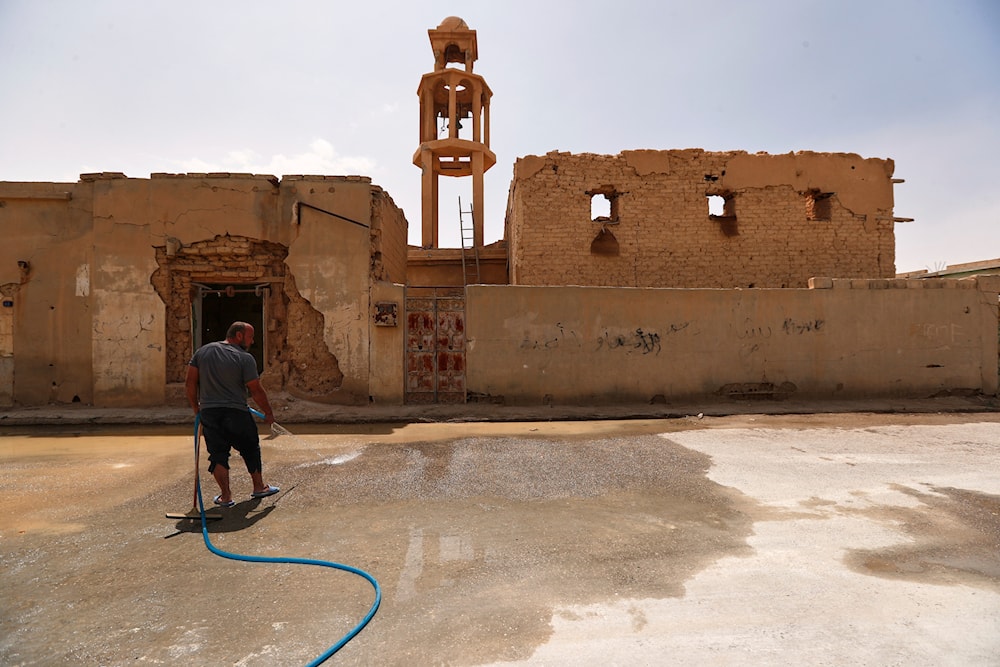Rukban Syrian displacement camp near Jordan border shut down
The Rukban displacement camp near the Syria-Jordan border has officially closed as the last residents return to eastern rural Homs, ending a major humanitarian crisis.
-

A man cleans the street beside a destroyed old church as families return to their homes after spending nine years in a notorious displacement camp in the Syrian desert, in al-Qaryatayn, in the eastern Homs province of Syria, Tuesday, June 3, 2025 (AP)
The Rukban displacement camp near the Jordanian-Syrian border has been closed after the last residents left for eastern rural Homs, Syrian media reported Saturday.
Syria’s Minister of Emergency Situations, Raed al-Saleh, commented on the closure in a post on X, calling it "the end of one of the most severe humanitarian crises faced by displaced people."
Al-Saleh expressed hope that this step would "begin a process to end the suffering in remaining camps and allow displaced families to return home safely and with dignity."
اغلاق مخيم الركبان يمثل نهاية لواحدة من أقسى المآسي الإنسانية التي واجهها أهلنا النازحون، نأمل أن تشكل هذه الخطوة بداية لمسار ينهي معاناة بقية المخيمات، يعيد أهلها إلى ديارهم بكرامة وأمان.#الجمهورية_العربية_السورية#وزارة_الطوارئ_والكوارث#مخيم_الركبان#سوريا pic.twitter.com/trh8k2OaJc
— Raed Al Saleh ( رائد الصالح ) (@RaedAlSaleh3) June 7, 2025
Established in 2014 following the displacement of thousands from eastern rural Homs and Hama toward the desert, the Rukban camp endured dire conditions, with its displaced population peaking at around 50,000 people, mostly women and children, between 2018 and 2019.
Half a million Syrians return amid regime change
Gonzalo Vargas Llosa, the head of the UNHCR mission in Syria, reported that around 500,000 Syrian refugees have returned home following the previous regime's collapse on December 8, 2024, marking a significant repatriation movement.
During a May 15 interview for Syria's state-run SANA news agency, Llosa praised US President Donald Trump's commitment to removing Syrian sanctions, emphasizing that this decision would "help improve humanitarian conditions and enable additional refugee returns" as part of the ongoing repatriation efforts.
The UNHCR chief noted that numerous refugees and internally displaced persons have shown a willingness to return home following the removal of their primary displacement cause.
He explained that most returnees to date originated from neighboring countries, particularly Jordan, Lebanon, Turkey, Iraq, and Egypt, as part of this ongoing repatriation trend.

 2 Min Read
2 Min Read









